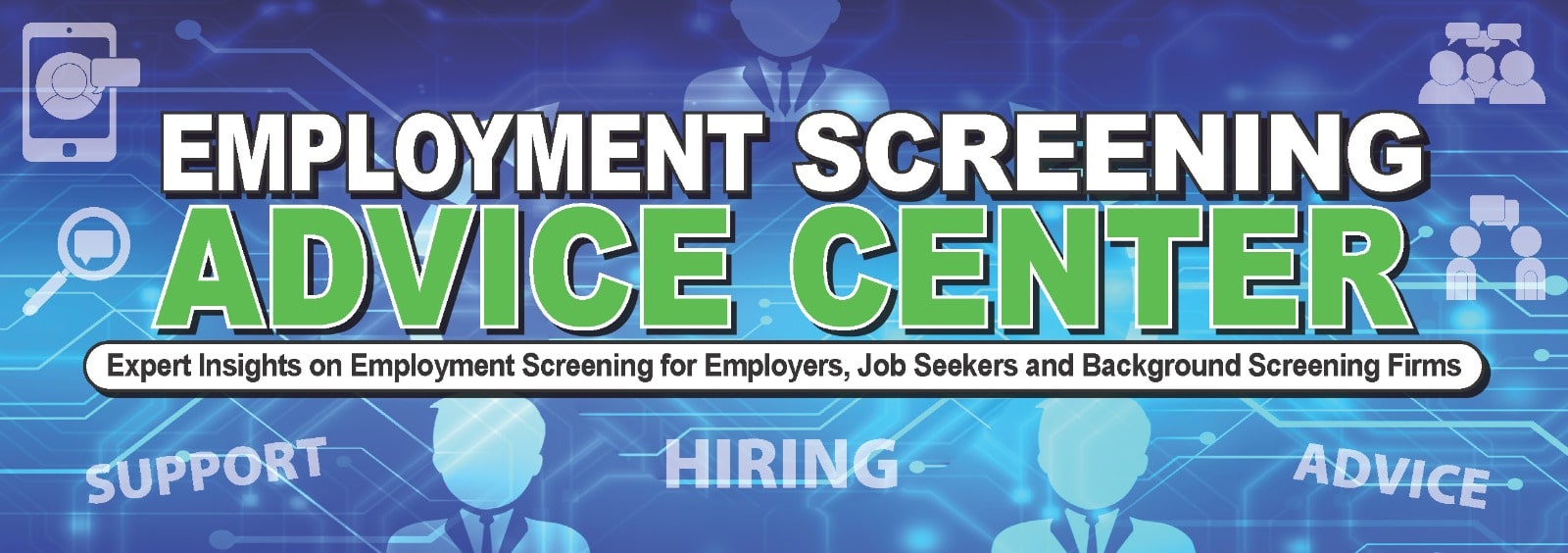
Author and Copyright Holder: Lester S. Rosen, Esq. Founder and CEO of Employment Screening Resources (ESR)
Employers have become increasingly concerned about knowing if an applicant has a criminal history for multiple reasons. As a result, more employers are conducting pre-employment background checks to try to minimize the risk of a bad hire. One reason for their concern is that employers have been the subject of large jury verdicts for negligent hiring—a situation where a person with a criminal record is hired and then harms others—that could have been avoided by a criminal record check. Employers feel they are susceptible to these actions because they have a legal duty to exercise due diligence in the hiring process, and that duty can be violated if an employer hires someone that they either knew or should have known in the exercise of reasonable care was dangerous or unfit for a job. The concern from the employer’s point of view is that a person with a criminal past may have a propensity to re-offend in the future.
On the other hand, society also has a vested interest in helping people with a past criminal record obtain and maintain employment. It is difficult for an ex-offender to become a law abiding, tax-paying citizen without a job. Unless society wants to continue to spend its tax dollars on building more and more jails and prisons, ex-offenders need the opportunity to rejoin the workforce. Getting ex-offenders back into the workforce is a win-win for everyone.
For an ex-offender, a job search can become a frustrating “Catch-22” situation. Unless prohibited by law, many employment applications may ask in some fashion if a person has a criminal record. If not on the application form, a job applicant may well be asked at or after an interview about a criminal record. If a person lies, then they are always at risk of being terminated if the criminal record is discovered later. If a person is honest and admits the past misconduct, there is a substantial risk of not even getting a chance to compete for the job. The fear is that upon learning about a past criminal conviction, the employer will simply trash can the employment application or stop considering the applicant at all.
The bottom line is that many ex-offenders seeking to rebuild their lives and get back into the mainstream face significant challenges. An ex-offender seeking a second chance may run into a wall where an employer will not even consider their application in the first place. That can occur when an employer has pre-judged the applicant based upon their status as an ex-offender without even knowing anything about the ability of the applicant to successfully do the job. Ex-offenders may well feel there is a prejudice against them since the root of the word prejudice is “Pre-judgment.” In other words, an ex-offender faces the prospect of being judged by their status as an ex-offender instead of an individual who may in fact be a great candidate for the job.
There is no perfect answer. A person with a criminal record is going to face greater challenges in getting employment. That is a fact of modern life. In addition, there are certain jobs where an employer will justifiably not hire an ex-offender. In fact, there are positions where, by law, an employer may be prohibited from hiring an ex-offender. This can occur for example if there is a government mandates licensing rule where the law specifies that certain offenses make a person ineligible.
However, challenging is not the same as impossible. The key is the right attitude and getting and keeping that first job, so that as time goes by, a person has developed a successful job history that outweighs past problems. The goal of this paper is to provide helpful insights and suggestions to help ex-offenders get back into the workforce.
Ten Approaches for Ex-Offenders
Here are ten (10) approaches a person with a past criminal record can consider when seeking employment:
- See an attorney to explore if you are eligible to get your conviction sealed, expunged, or judicially set aside.
- You may have the Legal Right to say NO on an application or interview if asked about a criminal record.
- Does “Ban the Box” apply to you?
- Understand your rights under the Fair Credit Reporting Act (FCRA) and state laws if there is a background check and your criminal record is being used against you.
- If a background report is not 100% correct and accurate, immediately contact the background screening firm and the employer.
- Request an Individualized Assessment of your situation.
- Seek professional assistance and talk to people experiencing the same challenges.
- Honesty is the best policy.
- Start to rebuild your résumé one step at a time, even if it is not the “perfect” job.
- Take the long-term view.


